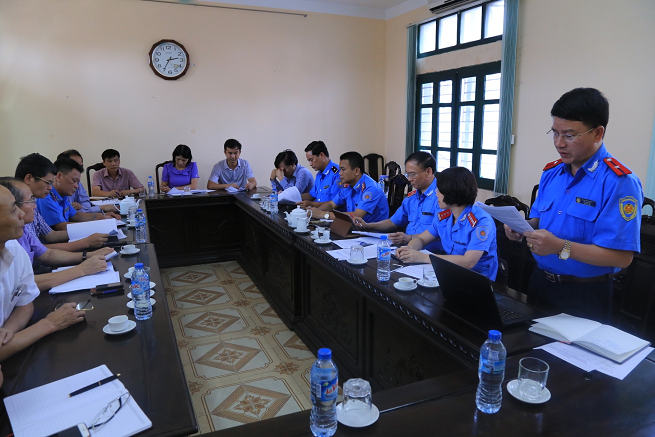From July 01, 2020, when the amended Law on Cadres and Public Employees and the Law on Public Employees 2019 officially take effect, the following 09 important changes will impact public employees nationwide.

09 important changes public employees nationwide need to know from July 1, 2020 - Illustration
1. Statutory pay rate will not increase to 1.6 million VND/month as initially planned
According to Resolution 86/2019/QH14, from July 1, 2020, the statutory pay rate for officials and public employees was expected to be 1.6 million VND/month (an increase of 110,000 VND/month compared to the current rate).
However, due to the impact of the Covid-19 pandemic, on the afternoon of June 19, 2020, during the closing session, the National Assembly voted to pass the resolution of the 9th session, deciding not to adjust the statutory pay rate for officials and public employees, armed forces, and pensions from July 1, 2020. The statutory pay rate from July 1, 2020, applicable to public employees will remain at 1,490,000 VND/month. Consequently, salaries and allowances for public employees from July 1, 2020, will be calculated as currently.
2. Only 3 cases will enjoy “lifetime public employee” status from July 1, 2020
The Law on Cadres and Officials and the Law on Public Employees (amended 2019) has amended and supplemented the provisions regarding employment contracts for public employees.
All individuals hired as public employees from July 1, 2020, will be subject to fixed-term employment contracts, except for the following three cases:
- Public employees hired before July 1, 2020;- Cadres and officials transitioned to public employees as stipulated in point b, clause 1, Article 58 of the Law on Public Employees 2010 (i.e., public employees accepted and appointed into a position legally defined as an official; the acceptance and appointment decision also serves as the hiring decision);- Public employees working in areas with extremely difficult socio-economic conditions.
Thus, if not falling into these three cases, public employees will not enjoy the “lifetime public employee” policies from July 1, 2020.
3. Extension of fixed-term employment contracts for public employees
Specifically, according to the Law on Cadres and Officials and the Law on Public Employees (amended 2019), fixed-term employment contracts are contracts where both parties agree on terms and conditions, including the contract's start and end dates, within a period of 12 to 60 months. (Current regulations in the Law on Public Employees 2010 set the contract term to be from 12 to 36 months).
Thus, the Law on Cadres and Officials and the Law on Public Employees (amended 2019) has extended the maximum employment contract term for public employees to 5 years (60 months).
4. Additional cases where public employees can be dismissed from employment contracts from July 1, 2020
The Law on Cadres and Officials and the Law on Public Employees (amended 2019) has added a new case where a public service provider can unilaterally terminate an employment contract with a public employee: “Public employees not meeting the requirements after probation.”
Currently, this provision is mentioned in Decree 29/2012/ND-CP concerning the termination of employment contracts for probationary employees but is not yet officially included in the Law.
Thus, starting from July 1, 2020, there will be 6 cases in which public employees can be dismissed from employment contracts.
5. More public employees can be transitioned to officials without examination or selection from July 1, 2020
Specifically, clause 3, Article 37 of the Law on Cadres and Officials and the Law on Public Employees (amended 2019) adds a new method for recruiting officials aside from the current examination or selection methods.
Heads of managing agencies can accept public employees working at public service providers as officials if they meet the standards and job requirements.
6. From July 1, 2020, the statute of limitations for disciplining public employees will be up to 5 years
Specifically, according to the Law on Cadres and Officials and the Law on Public Employees (amended 2019), the statute of limitations for disciplining public employees will extend to 5 years from the date of the violation. For less serious violations warranting reprimand, the statute of limitations for disciplining will be 2 years (Currently, this period is 24 months for all cases).
7. Looser retirement conditions for public employees from July 1, 2020
Specifically, according to clause 8, Article 2 of this Law, amending and supplementing clause 3, Article 56 of the Law on Public Employees 2010, public employees under disciplinary action, investigation, prosecution, or trial cannot be appointed, seconded, trained, or dismissed. This implies that retirement policies will still be applicable for public employees under disciplinary action. (Current regulations do not resolve retirement for these subjects).
8. Changes in policies for public employees' resignation
Specifically, according to clause 6, Article 2 of the Law on Officials and the Law on Public Employees (amended 2019), modifying and supplementing clause 1, Article 45 of the Law on Public Employees 2010, public employees will receive resignation allowances, job loss allowances, or unemployment insurance benefits under labor laws and social insurance laws when public service providers unilaterally terminate employment contracts, when contracts expire without renewal, when public employees unilaterally terminate contracts due to illness or accidents as stipulated in clause 4, Article 29 of the Law on Public Employees 2010, or unilaterally terminate contracts under clause 5, Article 29 of the Law on Public Employees 2010, except in the following cases:
- Forced resignation;- Unilateral termination of contracts in violation of clauses 4, 5, and 6 of Article 29 of the Law on Public Employees 2010;- Termination of contracts under clause 5, Article 28 of the Law on Public Employees 2010.
Thus, this Law has clearly defined resignation policies for public employees when public service providers unilaterally terminate employment contracts, instead of a general provision on policies for public employees upon contract termination as currently.
9. From July 1, 2020, public employees will be evaluated through specific work and products
According to clause 5, Article 2 of this Law, modifying and supplementing Article 41 of the Law on Public Employees 2010, in addition to the current evaluation criteria, from July 1, 2020, public employees will also be evaluated based on the performance of tasks or work plans and specific tasks assigned; progress and quality of task completion. The evaluation must be tied to the job position and demonstrated through specific work and products.
1. The evaluation of public employees is based on the following criteria:
a) Compliance with the Party's guidelines, policies, laws of the State, and regulations of agencies and units;
b) Results of job performance under signed employment contracts, work plans, or specific tasks assigned; progress, and quality of task completion. The evaluation must be tied to the job position and demonstrated through specific work and products;
Thus, from July 1, 2020, the evaluation of public employees' task performance must be tied to the job position and demonstrated through specific work and products. This will make the evaluation of public employees' quality more clear, accurate, and fair compared to current regulations.
Nguyen Trinh
 Article table of contents
Article table of contents
![[InfoGraphic] 6 forms of discipline for officials and public employees under Decree 71/2016/ND-CP](https://cdn.lawnet.vn//uploads/NewsThumbnail/2016/07/12/1319291-01.png)




.Medium.png)
.Medium.png)
.Medium.png)
.Medium.png)
